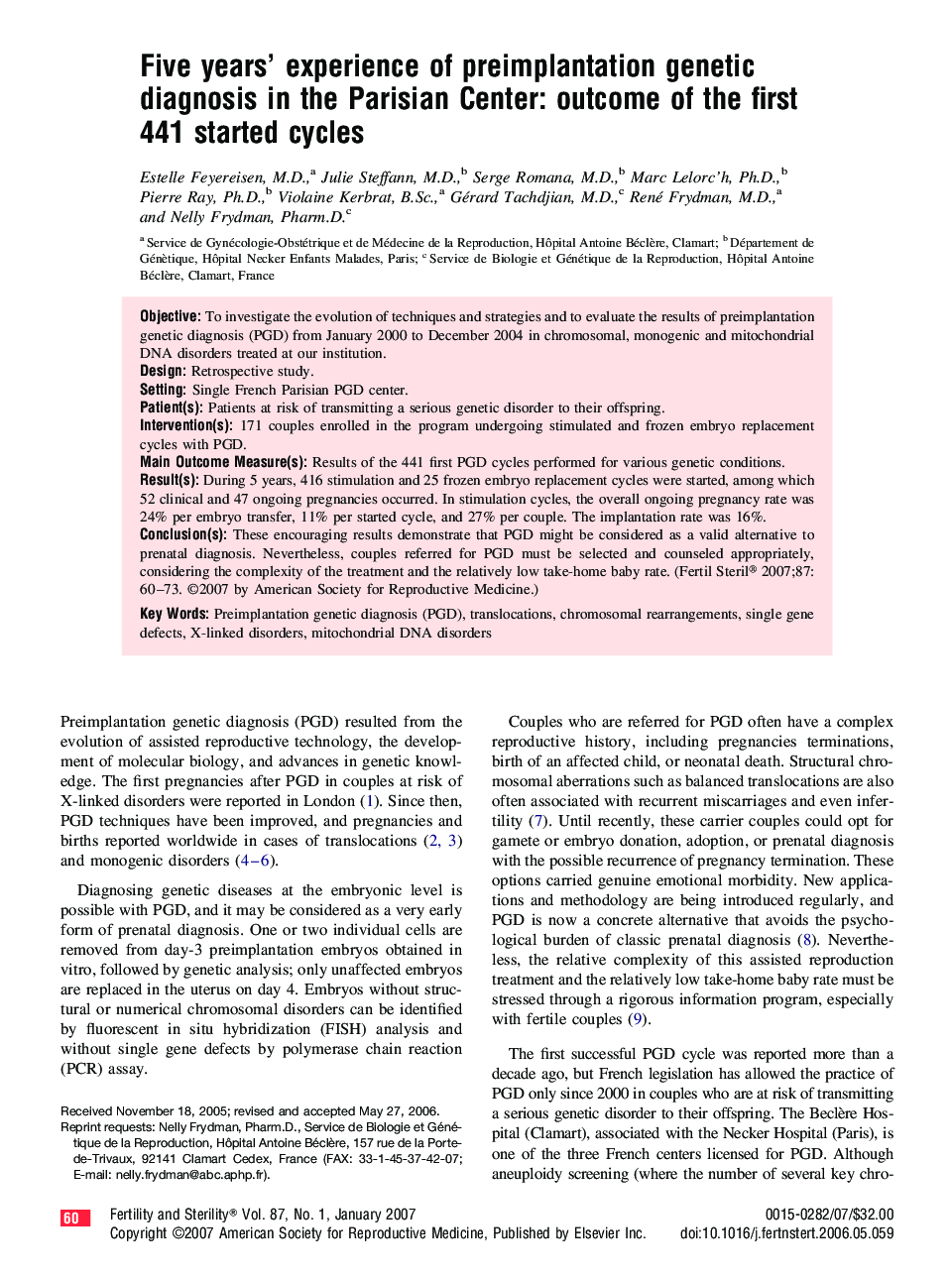| Article ID | Journal | Published Year | Pages | File Type |
|---|---|---|---|---|
| 3940413 | Fertility and Sterility | 2007 | 14 Pages |
ObjectiveTo investigate the evolution of techniques and strategies and to evaluate the results of preimplantation genetic diagnosis (PGD) from January 2000 to December 2004 in chromosomal, monogenic and mitochondrial DNA disorders treated at our institution.DesignRetrospective study.SettingSingle French Parisian PGD center.Patient(s)Patients at risk of transmitting a serious genetic disorder to their offspring.Intervention(s)171 couples enrolled in the program undergoing stimulated and frozen embryo replacement cycles with PGD.Main Outcome Measure(s)Results of the 441 first PGD cycles performed for various genetic conditions.Result(s)During 5 years, 416 stimulation and 25 frozen embryo replacement cycles were started, among which 52 clinical and 47 ongoing pregnancies occurred. In stimulation cycles, the overall ongoing pregnancy rate was 24% per embryo transfer, 11% per started cycle, and 27% per couple. The implantation rate was 16%.Conclusion(s)These encouraging results demonstrate that PGD might be considered as a valid alternative to prenatal diagnosis. Nevertheless, couples referred for PGD must be selected and counseled appropriately, considering the complexity of the treatment and the relatively low take-home baby rate.
